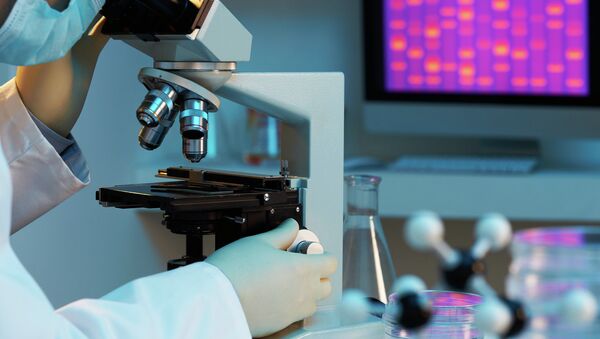Scientists have unraveled the mysteries of what makes living things look and act the way they do. Humans have learned to manipulate genes to produce plants and animals more suited to our needs; various genetic techniques have given a fighting chance to people facing deadly diseases. However, we've yet to reach one major milestone – creation of new life out, well, nothing.
Synthetic biology is a branch of science which is closely intertwined with other sciences, such as biology, genetic engineering, biophysics and even computer science. What exactly constitutes a synthetic organism and what synthetic biology is supposed to study doesn't actually have one concrete answer. Simply put, it's what we make of it, literally. It's not 'artificial life' precisely – in theory, artificial life can be completely virtual – in other words, it can be a program; or it can be based on physical machines or hardware (likely, of course, a combination of two). Then there's the so-called “wet” artificial life which is based on biochemical processes – this is what synthetic biology is about.
Doctor Jennifer Kuzma, co-director of the Genetic Engineering in Society Center at North Carolina State University sheds some light on the subject:
Speaking of a very broad definition of synthetic biology, this has been going on from the mid-80s, when we've started to try to put multiple genes into bacteria, for example, to engineer pathways for them to produce industrial chemicals, or to break down pollutants in the environment, or to remediate soil from contamination. Now, on the other end of the spectrum you have engineers in the lab – I would say in the last fifteen years – really working hard trying to standardize different biological parts, piece them together to create really kind of new types of biological systems.
So, how far away are we from creating “wet” artificial life? Doctor Kuzma provides an answer.
Now, we're not quite there yet which, you know, producing a completely synthetic organism, but we're starting to think about doing that and there are some pilot projects for doing that. This also includes synthetic DNA. We have a lot of abilities to synthesize DNA now.
So, while we can't really create life “from scratch” right now, we certainly mastered creation of the basic building blocks. Interestingly enough, some of the applications can be quite surprising. For example, one can create DNA for the sole purpose of storing information – and, not the kind that cells need to operate an organism, but the kind that can be decoded by a computer and then read by a human.
George Church, Professor of Genetics at Harvard Medical School and Professor of Health Sciences and Technology at Harvard and MIT, managed to encode a book into a single strand of genetic DNA. He later noted the potential far-reaching applications of the technique:
Imagine that you had really cheap video recorders everywhere. Just paint walls with video recorders. And for the most part they just record and no one ever goes to them. But if something really good or really bad happens you want to go and scrape the wall and see what you got. So something that's molecular is so much more energy efficient and compact that you can consider applications that were impossible before.
This is just the tip of the iceberg of what is possible with synthetic biology: from producing new synthetic materials to creation of a new life form for any purpose the scientists envision.

